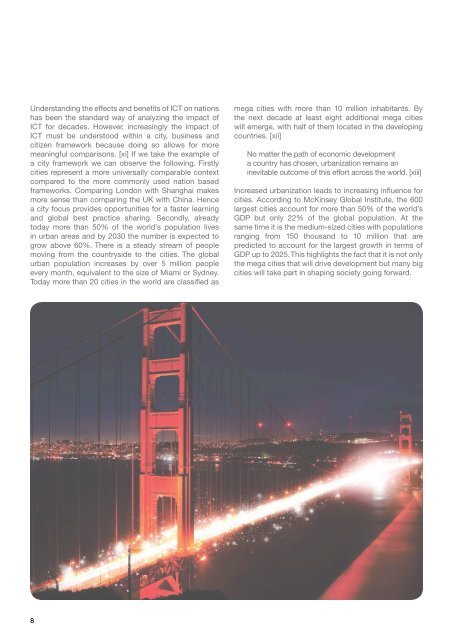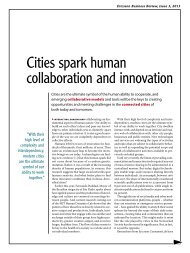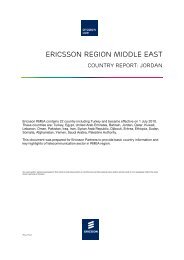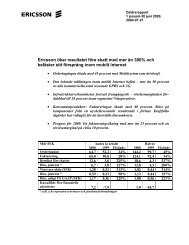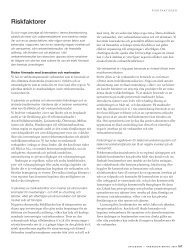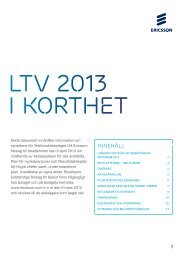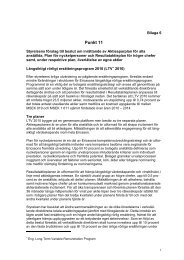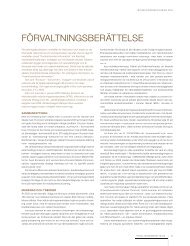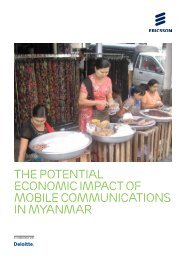ICT Policy For Networked Society - Ericsson
ICT Policy For Networked Society - Ericsson
ICT Policy For Networked Society - Ericsson
Create successful ePaper yourself
Turn your PDF publications into a flip-book with our unique Google optimized e-Paper software.
Understanding the effects and benefits of <strong>ICT</strong> on nations<br />
has been the standard way of analyzing the impact of<br />
<strong>ICT</strong> for decades. However, increasingly the impact of<br />
<strong>ICT</strong> must be understood within a city, business and<br />
citizen framework because doing so allows for more<br />
meaningful comparisons. [xi] If we take the example of<br />
a city framework we can observe the following. Firstly<br />
cities represent a more universally comparable context<br />
compared to the more commonly used nation based<br />
frameworks. Comparing London with Shanghai makes<br />
more sense than comparing the UK with China. Hence<br />
a city focus provides opportunities for a faster learning<br />
and global best practice sharing. Secondly, already<br />
today more than 50% of the world’s population lives<br />
in urban areas and by 2030 the number is expected to<br />
grow above 60%. There is a steady stream of people<br />
moving from the countryside to the cities. The global<br />
urban population increases by over 5 million people<br />
every month, equivalent to the size of Miami or Sydney.<br />
Today more than 20 cities in the world are classified as<br />
8<br />
mega cities with more than 10 million inhabitants. By<br />
the next decade at least eight additional mega cities<br />
will emerge, with half of them located in the developing<br />
countries. [xii]<br />
No matter the path of economic development<br />
a country has chosen, urbanization remains an<br />
inevitable outcome of this effort across the world. [xiii]<br />
Increased urbanization leads to increasing influence for<br />
cities. According to McKinsey Global Institute, the 600<br />
largest cities account for more than 50% of the world’s<br />
GDP but only 22% of the global population. At the<br />
same time it is the medium-sized cities with populations<br />
ranging from 150 thousand to 10 million that are<br />
predicted to account for the largest growth in terms of<br />
GDP up to 2025. This highlights the fact that it is not only<br />
the mega cities that will drive development but many big<br />
cities will take part in shaping society going forward.


